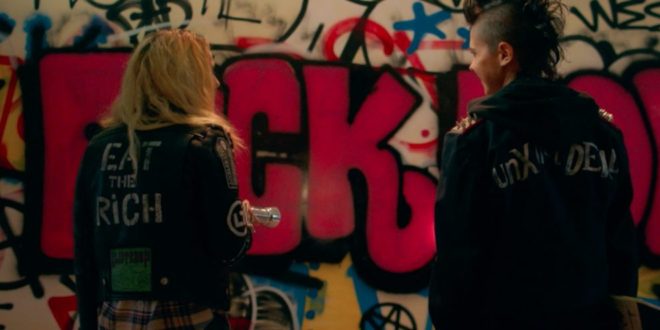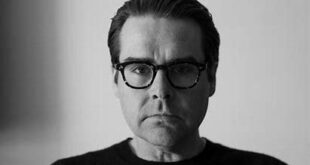Jovanka Vuckovic has been a champion of women in film for quite some time now and it is inspiring! I have been a fan of Vuckovic since her days at Rue Morgue Magazine, and I have followed her career with incredible enthusiasm. But now, finally, Vuckovic can add feature filmmaker to her already impressive resume with the release of Riot Girls (read our review – here). The post-apocalyptic, punk-love, survival story starring fan favorite Munro Chambers (Turbo Kid, Knuckleball) recently screened in Montreal, Quebec at the famed Fantasia International Film Festival and we couldn’t have been more excited to sit down and chat with both Munro and Jovanka! We talk about women in the industry, taking on diversity, and of course – Riot Girls!
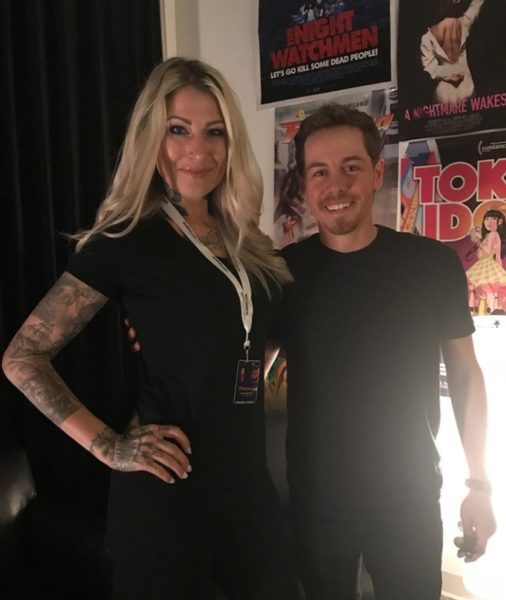
JV: Hi Danni!
PH: Hello! How are you?
JV: Is this the same Danni that I met at Texas Frightmare Weekend a few years back?
PH: It certainly is!
JV: Oh, my God! It is so great to hear your voice again! How are you?
PH: I’m doing wonderful! Thank you so much for taking the time to talk to me.
JV: Of course! Oh, my God. Thank you so much for doing a piece on the film. I appreciate it so much.
PH: Yeah, no, thank you. I was super stoked with my editor, because she knows I’m a huge fan of yours, so when it came up, she offered it to me, and I jumped on it.
JV: Thank you!
PH: This is something I’ve been dying to ask you. How does it feel to earn the highest grossing film ever from Magnolia with the anthology, XX?

JV: You know, it’s surprising. When we heard that from Magnolia, it really surprised me. They took a chance on XX, and they bankrolled it exclusively almost without hesitation when our other previous financier dropped out. So, it feels pretty good to know that, just to be vindicated, to know what I’ve always known, which is that people want to see new perspectives in the horror genre, and women are the next great frontier of horror cinema. I strongly believe that these small perspective shifts result in new storytelling possibilities, and the horror genre needs more of that. So it feels pretty good. We’re developing XX as a TV series, an anthology TV series.
PH: Oh, awesome!
JV: Yeah, I’m hoping to continue that… the whole mandate was to create opportunities for women in horror, particularly in the horror genre where there are none, or at the time there were very few. So it feels pretty good to create jobs for women, and pull doors open for women in the genre where they were sort of only being held open if the women were willing to take their tops off. You know, time’s up, and I think we can do better. Thank you for asking about XX.
PH: Oh, yeah. Absolutely. I thoroughly enjoy that one. I actually have the signed copy sitting above my writing desk. Munro, happy early birthday!
MC: Thank you!
PH: Real quick with you Munro, I really enjoyed watching you in this role. What drew you to Riot Girls, and to play Jeremy?
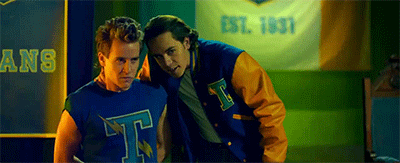
MC: Jovanka said, “Will you do it?” No, I went into the audition process. Loved the role, got the script. Loved the script. And then we all met, and they made the really tough choice to pick someone. I’m just really thankful that I got picked.
JV: Aww, it was not a choice. We saw him and he was one of the… you know, casting on this one was really… it was such a gift in many ways because it was like the second I saw Paloma, I think she was the very first audition I saw, and I went, “That’s her. I don’t want to see anyone else.” And then I knew with Madison. I was like, “That’s the person that I want,” and I didn’t need to see other people. And then with Munro, I was like, “That’s the guy.” It was very easy. I was just amazed that he even came in because I was like, he’s not going to audition. He’s past that. He can do whatever he wants. So I was really pleased that he was willing to come in, and throw a little bit of Jeremy at us.
MC: I’m definitely not past anything that are great roles that have depth to them. Like you were saying before, Jeremy wasn’t just a one note villain. I got the experience to play Dixon in Knuckleball before Jeremy, and that was not a one note villain. So, I like roles that have complexity to them. I like roles that have depth. You really have to tangle with them, and find their emotional history, and find out where their malice comes from. When we were working out the fine lines of film references, and who Jeremy is, and Jeremy’s relationships with some of the other characters, he wasn’t just this one note jock who ran the West Side. There was a little bit more to him, and hopefully people see that in the film.
PH: Yeah, you were pretty terrifying. We just revisited Turbo Kid the other day, and it’s such a far cry from your geeky protagonist in that movie, to Jeremy. Going back Jovanka, what we were just talking about with creating doors open for ladies, something that is truly wonderful about Riot Girls is the number of women involved in so many aspects on this film. What was it like tracking down the talent that you utilized?
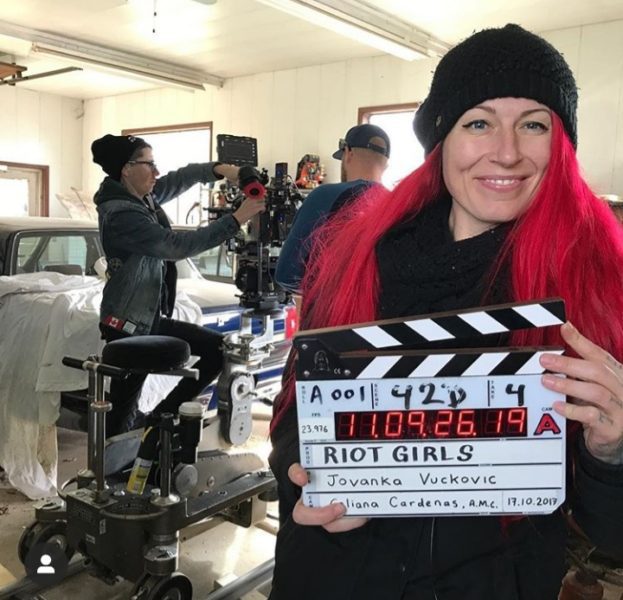
JV: Speaking just really quickly to Jeremy, there were scenes in an early draft of the script that kind of really showed even more of his vulnerability a little bit more about who he was. But when we were looking at stuff just to cut because the movie…and for a movie called Riot Girls, there is a lot of the Titans in it, right? So those were the things that had to go, which made me sad because you always want to try to keep stuff that shows us who these people are, right? That’s just one of the tough things, another thing you have to do, as a filmmaker. So we had to prioritize the women and so from the beginning, we prioritized the hiring of women, and putting women behind the camera, and in front of it. We made a commitment to hire women. A lot of times you go into this kind of thing, and there’s a lot of money at stake, and a bunch of different people who have financiers who are involved, and they don’t want to take risks. They’re risk averse. They want you… the easiest thing, is for you to hire the guy you worked with before who was a good track record and has tons of experience and has all of the opportunities. And then the women will once again get passed over. I can’t sleep at night if I make those kinds of choices.
It was really, really important to Lauren, Katherine, and me because this is written by women, directed by a woman, produced by a woman that we hired more women in key creative roles than are usually hired. So we’re really proud to have a gender balanced film production. It’s not the easiest thing in the world to do. There is a lot of push for you, “Oh, just hire this guy. He’s the best person for the job.” Saying someone is the best person for the job is a very mild… it’s a blind spot for a lot of guys. They don’t understand what you mean when you say that the right person for the job is sometimes a woman who has as much experience. This is the only way we can make real change happen – where women have to hire each other. And then as far as casting the characters, they were all on the page. All those women. We actually did turn Caine into a girl. Caine was originally a guy, and I didn’t want the leader of the resistance to be a man. So, we turned Caine into a… I pulled a Ridley Scott with Alien, and I just looked at this character, and said, “Let’s just change it. Let’s just cast a girl, and change nothing else. None of the dialogue. Just cast a girl in the role. And see what happens.”
PH: I thought it worked awesome.
MC: Just to that, I love that you guys made Caine a girl, when I thought I was going to push a guy. Can’t wait. Friends of mine, we all talked about actors, and we talked about at length that we’re excited for that moment where a role comes out, and it’s that one person and you see everybody. And you’re just auditioning for that role, that person. And you don’t have to identify so it has to be male, caucasian, that kind of thing. And that’s starting to happen more. But there’s a couple times where me and a friend of mine, me and her were just like, we’d love to duke it out for a role to see what you’d put in and your spin on it. I love that you guys switched it up, and it will be fun one day when we all audition for a role for that lead, and it’s not just… because you write it as a man or write is as a woman sometimes. It’ll be fun when we all get to audition for something that’s just pure equal like let’s see what the actors spin on it.
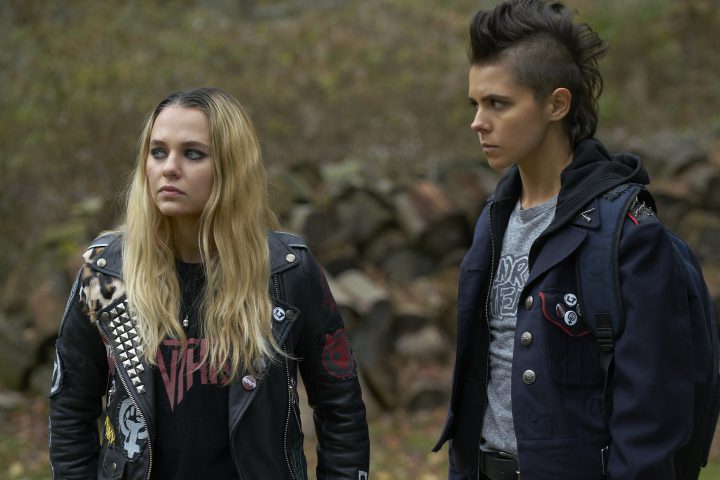
PH: Yeah, that would be awesome.
JV: And then of course, some of the magic of movie making and collaboration is that they bring in all these great, great things to the film that you never expected like the sexual tension between Caine, and they obviously have a history. And that was a choice we made. They brought that to the scene, and I thought it was great. Munro said, “I talked it over with Jenny, and here’s what we think,” and I was like, “I love it. Go for it.” And it’s actually one of my favorite scenes in the movie. Just the way that Jenny is like… you know. “For what? The pleasure of servicing you?” She’s just like… fuck the patriarchy. She’s saying, I’m not here to be your sex slave. Fuck you. So, that was great.
PH: Jovanka, what was it about Katherine Collins’ story that initially struck you? And when you read it, did you immediately envision the comic book theme?
JV: Yeah, when I first read it, it was a different movie. I read a version of it that was being developed with male producers, so it was more like The Hunger Games. Not at all, I think, what Katherine was going for. So we talked, and I said, “I get the sense that you’re going for more like of this grubby cult show, and not Hunger Games with a bunch of sexy lesbian sex scenes mixed in there.”
PH: We want real people.
JV: No they’re not, and it reminded me of Tank Girl and she was a huge fan obviously of the comic, having grown up and being a teenager in the 90s like I was. And being queer, she was really… Rachel Talalay’s film adaptation of Tank Girl had a huge impact on her. I’m sure you know this.
PH: Oh, yeah. And then with Rachel helping to revive the Nightmare on Elm Street franchise too. The woman’s a legend.
JV: Exactly, exactly. And even though Tank Girl was written by men, she’s still a queero. She’s super badass. That’s sort of what I was thinking with, okay I can see this. Because otherwise it’s just too preposterous. They can see it’s so preposterous so the only way into this movie I thought was to set the tone right away, and let the viewers know that hey, we’re supposed to be having fun. Don’t take this too seriously, this is a comic book. So then I added those transitions I always wanted to do. They’re shamelessly stolen from Ang Lee’s Hulk. And then the framing device we added towards the end. It really helped give context to the background of what happened with the disease without having to write in a boring exposition where some person tells us about what happened. It was just a more fun way to kind of give the audience a bit more information.
PH: I really enjoyed, in the beginning, the little comic storyboards. It gets to the point right away, this is what’s going on, and bam.
JV: Right? It was just like… what happened before doesn’t really matter. The kids were like, we’re here now. This is a situation we have to deal with, and so we always talked about it, me and Katherine really didn’t give a shit about the disease… whether some scientists made it in a lab, none of that mattered.
PH: Yeah, it doesn’t.
JV: It’s supposed to be this little slice of their life and in and out and that’s it. So, yeah. I’m a huge comic book fan, and to answer your question about how I found my way into the story was just that… I don’t read a lot of scripts that depict women as actual human beings, particularly girls. I didn’t’ have characters like this growing up, and I don’t see enough movies where the girl gets the girl, and is not in a movie about being queer or coming out. I think that we need more of those kinds of stories where the choices are made to just make their queerness matter of fact, the same way people’s heterosexuality is matter of fact. We don’t need an explanation in every straight white movie as to why people are straight and white. They just are. The popular media would like us to believe the world is predominantly straight and white, as we both know that is not the world that we live in.
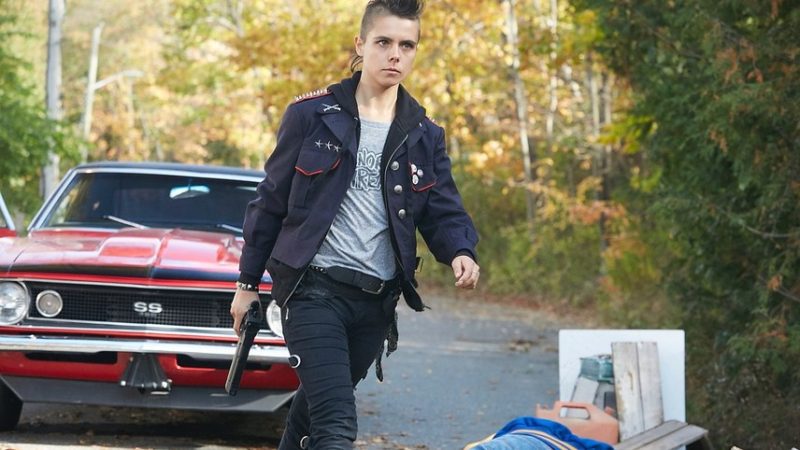
PH: Thank God.
JV: It’s a responsibility as storytellers to do better. And thankfully, things are changing, and they seem to be getting better.
PH: With the help of you and others, absolutely. I have a question for both of you, and whoever answers first. I always like asking this to people. If you could collaborate with anyone living or deceased, who would it be and what type of project would it be?
JV: For me, it would be Alice Guy, who is the first woman filmmaker. She’s credited for having written, directed, produced over a thousand movies during the silent era. She pioneered narrative filmmaking and synced sounds. And yet she’s not taught in film school alongside Méliès and all these sort of male counterparts. And a lot of her work was lost, or attributed to men. She is an unsung hero of cinema, and if I could go back in time and work with anyone, it would be with her, because she somehow figured out how to become a writer, a director, a producer, and a studio mogul. She had her own studio in the silent era. I would like to work with Alice Guy.
PH: I think I only briefly learned about her. Awesome answer. What about you Murno?
MC: It’s hard to come after that. I think for me, I grew up a huge Robin Williams fan. I couldn’t understand how someone could do Mrs. Doubtfire, and switch it up and do Fisher King. I didn’t understand that. So I would have loved to share the floor with him one day. I got the opportunity to share the floor with De Niro once, and that was huge for me as well, with Cape Fear and a lot of films I grew up inspired by. But also in just present filmmaking, Derek Cianfrance is someone I really respect, and I love his films, and I love how raw it is, and the way he tells stories. There’s a countless number of people that I’d love to collaborate with and hope to one day.
PH: I’m pretty sure you will. You’re doing pretty good. Actually, this is a pretty big year for you, Munro. Another movie is premiering for you this year, Harpoon (read our review – here) right? By Rob Grant?
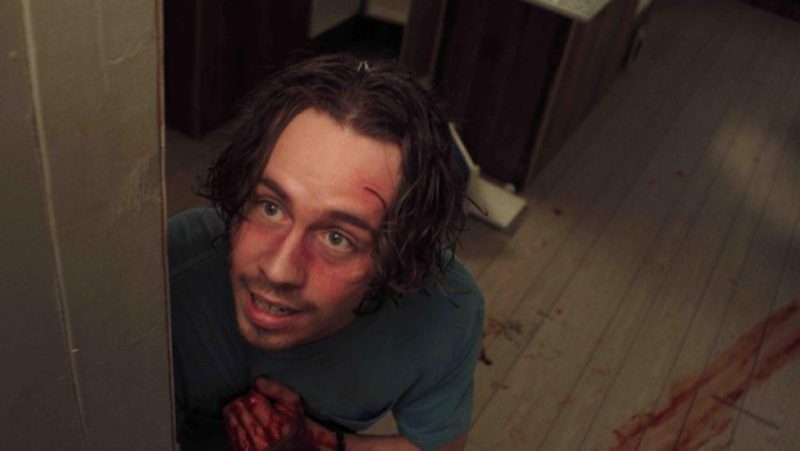
MC: Yes, yes.
PH: How’s the transition been for you from television to film?
MC: It’s been great. It kind of fell into my lap. It wasn’t something that was planned. Turbo Kid kind of started it off, and I’ve just been really, really fortunate and lucky that people are giving me an opportunity to play roles that I’ve never really played before. I’ve always wanted to play roles like this, and I’ve always wanted the opportunity to portray a person that has that in him, and I’ve been really, really lucky that people are giving me a shot. It’s been a lot of fun, and hopefully I can continue to do that.
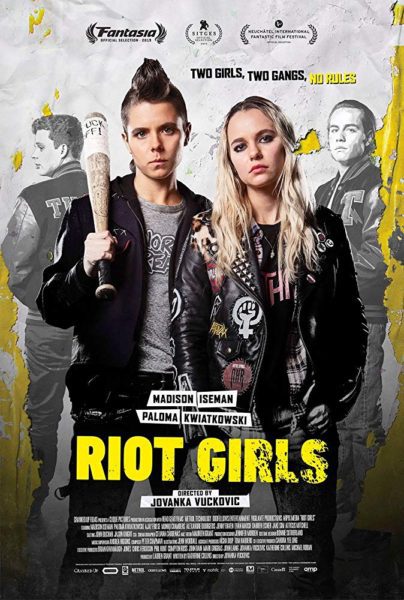
We cannot thank Munro and Jovanka enough for their time and if Riot Girls sounds like something that is up your alley, be sure to check it out On Demand and in theaters September 13th!
 PopHorror Let's Get Scared
PopHorror Let's Get Scared
